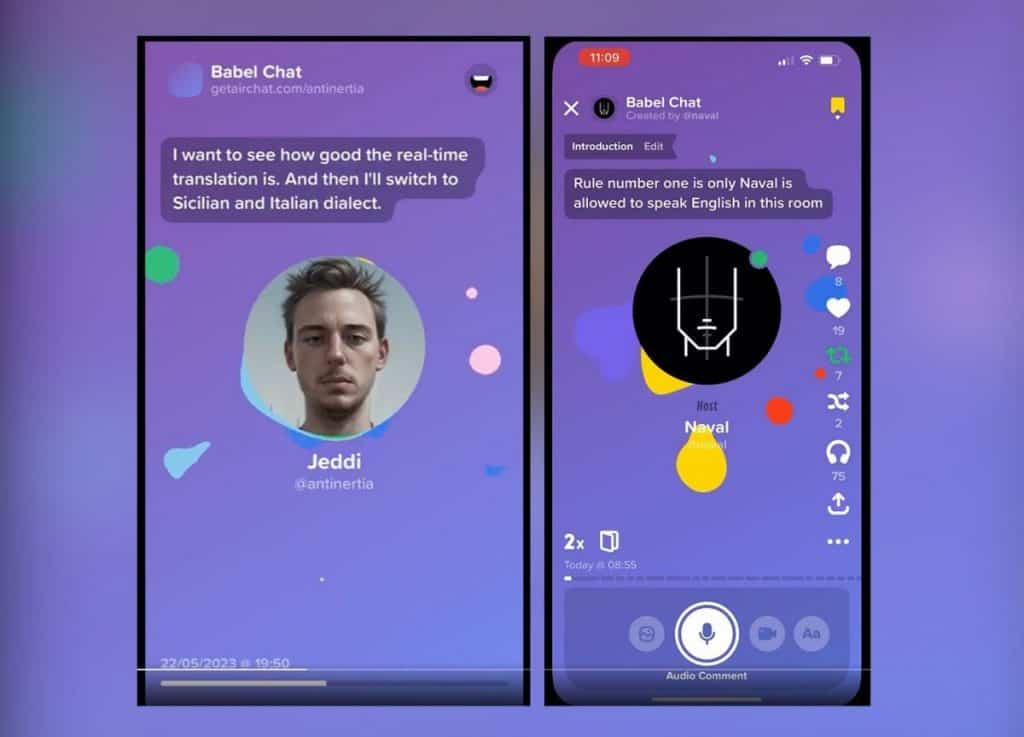The search for the next big platform to rival Twitter is gathering traction in a quickly expanding social media ecosystem. Following the flood of TikTok clones and the advent of Clubhouse, this year is primed to usher in new challengers to the popular microblogging site.

Meta, formerly known as Facebook, has announced intentions to launch its Twitter answer in June. The company is currently holding confidential talks with Instagram content creators, issuing invites to join the forthcoming app. Meta’s new initiative, spearheaded by Instagram founder Adam Mosseri, is garnering a lot of buzz. Notably, the network will support the decentralized ActivityPub protocol, which will allow artists to relocate to other platforms while keeping their subscribers.
Among the other contenders vying for the title of “Twitter killer” are:
Bluesky

Bluesky: Led by Jack Dorsey, the founder of Twitter, Bluesky is a decentralized social network that is gaining momentum. This innovative approach aims to address the challenges associated with traditional social networks, where the rise and fall of apps often result in the loss of user content and connections. With Bluesky, users will have the ability to seamlessly transfer their username, content, and friends to another platform with just a single click.
Airchat

Airchat: Naval Ravikant, a prominent entrepreneur and investor, is developing Airchat, which incorporates artificial intelligence (AI) features for real-time communication in any language. This AI-driven approach promises to enhance the user experience and enable seamless and efficient interactions on the platform.
Artifact

Artifact: Hailing from former members of Instagram, Artifact is a social network and news aggregator built on AI technology. This platform aims to provide users with personalized content recommendations and a unique social networking experience.
- Growing Protocols: Unlike the traditional model where apps rise and fall independently, the new generation of Web3 social networks aims to establish growing protocols that allow users to seamlessly transition from one platform to another. This ensures that even if a social network becomes obsolete, users can effortlessly transfer their username, content, and connections to a new platform with a single click.
- Seamless Implementation of GPT AI: Artificial intelligence, specifically GPT models, has revolutionized various aspects of social media. These models have unlocked new use cases such as highly accurate transcripts, content summarization in various styles, personalized chatbots, and more. Leveraging the power of AI, social networks can provide enhanced features and personalized experiences to their users.
As the race to find the next Twitter heats up, these new platforms are ready to reshape the social media world. They hope to grab the interest and involvement of the ever-growing social media user population by focusing on user-centric experiences, seamless transitions, and AI-driven features.
Read more about AI:
Read More: mpost.io








 Bitcoin
Bitcoin  Ethereum
Ethereum  Tether
Tether  XRP
XRP  Solana
Solana  USDC
USDC  Dogecoin
Dogecoin  TRON
TRON  Cardano
Cardano  Lido Staked Ether
Lido Staked Ether  Wrapped Bitcoin
Wrapped Bitcoin  Hyperliquid
Hyperliquid  Sui
Sui  Wrapped stETH
Wrapped stETH  Chainlink
Chainlink  Avalanche
Avalanche  LEO Token
LEO Token  Stellar
Stellar  Bitcoin Cash
Bitcoin Cash  Toncoin
Toncoin  Shiba Inu
Shiba Inu  Hedera
Hedera  USDS
USDS  Litecoin
Litecoin  WETH
WETH  Wrapped eETH
Wrapped eETH  Polkadot
Polkadot  Monero
Monero  Binance Bridged USDT (BNB Smart Chain)
Binance Bridged USDT (BNB Smart Chain)  Ethena USDe
Ethena USDe  Bitget Token
Bitget Token  Pepe
Pepe  Coinbase Wrapped BTC
Coinbase Wrapped BTC  Pi Network
Pi Network  WhiteBIT Coin
WhiteBIT Coin  Aave
Aave  Uniswap
Uniswap  Dai
Dai  Ethena Staked USDe
Ethena Staked USDe  Bittensor
Bittensor  OKB
OKB  NEAR Protocol
NEAR Protocol  Aptos
Aptos  BlackRock USD Institutional Digital Liquidity Fund
BlackRock USD Institutional Digital Liquidity Fund  Cronos
Cronos  Internet Computer
Internet Computer  Jito Staked SOL
Jito Staked SOL  Ondo
Ondo  Ethereum Classic
Ethereum Classic